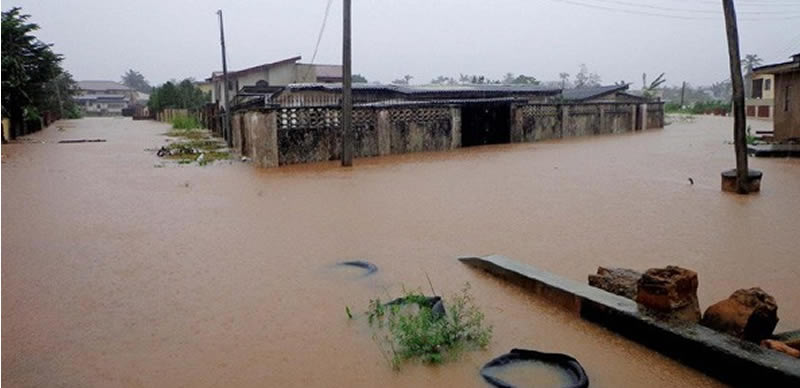
The warning was contained in a statement by the state Commissioner for Information, Paul Nwosu, on Friday.
Nwosu, while enumerating measures to mitigate the effect of the looming flooding, listed high-risk communities including Ogbaru, Ayamelum, Anambra East, Anambra West, Onitsha North, Onitsha South, Awka North, Idemili South, Ekwusigo and Ihiala LGAs.
Anambra State was among the states in Nigeria that battled massive flooding in 2022, as over 300 communities in six local government areas were submerged underwater for several weeks while residents of the affected areas were relocated to various internally displaced person camps across the state.
According to Nwosu, “The 2023 seasonal rainfall prediction and annual flood outlook by Nigerian Meteorological Agency and Nigerian Hydrological Service Agency have shown that there will be high rainfall across the country and flood this year.
“The high flood risk areas in Anambra State that could be flood hit include Ogbaru, Ayamelum, Anambra East, Anambra West, Onitsha North, Onitsha South, Awka North, Idemili South, Ekwusigo and Ihiala LGA
“The State Emergency Management Agency has issued the following flood mitigation measures: Make concrete plans for timely harvesting and evacuation of your farm produce and livestock to avoid losses. Do not wait until the flood comes to harvest.
“Make concrete plans to secure your household properties and essential belongings as much as possible before the flood sets in.
“Plan to get your family as well as the aged, the sick, pregnant women, infants and children evacuated well on time to safety nets (IDP camps provided by the ANSG government ) to avoid preventable loss of lives. Timely evacuation is key.
“De-silting of water channels should be done continuously as a huge amount of silt is deposited in water channels after rainfall; people should stop constructing in water plains and across water channels.
“Clear gutters and drainages, do not dispose of your trash in gutters or drainage; move to higher ground before the flood becomes neck deep. If cut off from the designated point, climb and stay on a tree or high platform.”
He further urged residents to keep a family disaster kit. A disaster kit is an assemblage of essentials (food, water, medications, touch lights, blankets, etc.) that will last a family a few days in the event of a flood.
Nwosu warned residents to avoid wading or swimming in flood waters due to submerged logs, stones and the presence of dangerous reptiles.
“Children should not attempt to recover any of their toys or belongings which perchance have fallen into the flood for it can drown them in the process.
”Do not drive in the flood because you can float and be carried away. Step out immediately and search for higher ground.
”Never play in flood. Do not drink or eat any food contaminated by flood water. Before the onset of the flood, deploy sandbags around buildings for flood defence.
”Avoid wet electrical equipment during flooding. Put off all electrical appliances to avoid electrocution. For more inquiries call 112,” he added.





